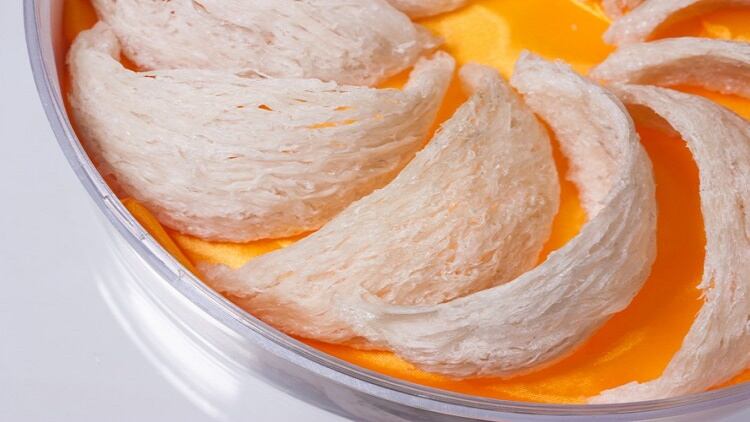The cooperative has seen at least a 50% increase in edible bird’s nest sales to China compared to during the COVID-19 lockdown period.
“People are consuming edible bird’s nest to strengthen their immune system,” Datuk Ng Siew Lai, chairman at the cooperative told NutraIngredients-Asia.
“Edible bird’s nest has a long history and tradition, there are research which shows that it can alleviate coughs and improve the immune system,” she said.
Edible bird's nests are created by swiftlets using solidified saliva, which are harvested for human consumption. They are particularly prized in Chinese culture due to their rarity and high nutritional value.
A study from Universiti Putra Malaysia had showed that edible bird’s nest exhibits antiviral activities against influenza virus. Specifically, it has displayed neuraminidase inhibitory properties in both in vitro and in vivo conditions.
The Kedah-based cooperative currently exports 90% of its products to China, while the other 10% goes to Australia, Japan, Hongkong, and Taiwan.
The cooperative mainly provides OEM services, selling edible dry bird’s nest to brand owners.
Bird’s nest has become a much talked about topic in China recently, with ready-to-eat brands such as Xiao Xian Dun and Yan Zhi Wu topping sales chart in the June 18 “618” online shopping event.
Beijing-based Xiao Xian Dun, also endorsed by Chinese movie star Zhang Ziyi, saw its sales from June 1 to 18 grew by 432% year-on-year, with sales volume exceeding RMB$230m (US$32m) on Tmall and JD.com.
Xiamen-based Yan Zhi Wu on the other hand, endorsed by Taiwanese supermodel Lin Chi-ling, saw its sales volume shot up by 733% between June 1 and June 20.
While Ng’s co-operative focuses on dried bird’s next, which requires the consumer to prepare, she said there was significant demand for both formats.
“Some prefer convenience, while others are concerned that RTD products do not contain pure edible bird’s nest and contain additives, it is up to personal preference,” she said.
From coastal to landlocked regions
According to Ng, China’s craze for edible bird’s nest was a relatively new phenomenon.
Previously, it was mainly in coastal cities Guangdong and Fujian where there was a demand for the beauty delicacy.
Now, consumers from landlocked cities of Chengdu, Beijing, Inner Mongolia, and Anhui are making the purchase as well.
“A few years back, I did a tradeshow in Jinan and there was a middle-aged lady who thought the dry edible bird’s nest was biscuits!
“Previously, edible bird’s nest is something for the upper class but now, it is more commonly consumed,” Ng said.
A higher demand has also brought down prices of edible bird’s nest.
“My conservative estimate is that the price of one kg of dry bird’s nest has dropped about 25% to 30% from a decade ago,” she said.
The competition from Indonesia’s edible bird’s nest suppliers has also lowered the price.
“It is about selling more at lower prices these days.”
Driving export
The Malaysian government has been pushing for further export of edible bird’s nest.
Last month, the Department of Veterinary Services (DVS) said it expected to increase the export value to RM$3bn this year from RM$1.15bn last year.
This is enabled by the exportation of raw unclean edible bird’s nest, after a Melaka-based company, MBN Enterprise Sdn Bhd, has gained export approval from the Chinese authorities.
To raise production volume, the authorities have proposed the use of automation and machinery.
To which, Ng said the cooperative has attempted to use machinery, but did not fit their requirement.
“We have tried using machinery to clean the raw bird’s nest, but they have gone out of shape after that, so we preferred to clean it manually.”





